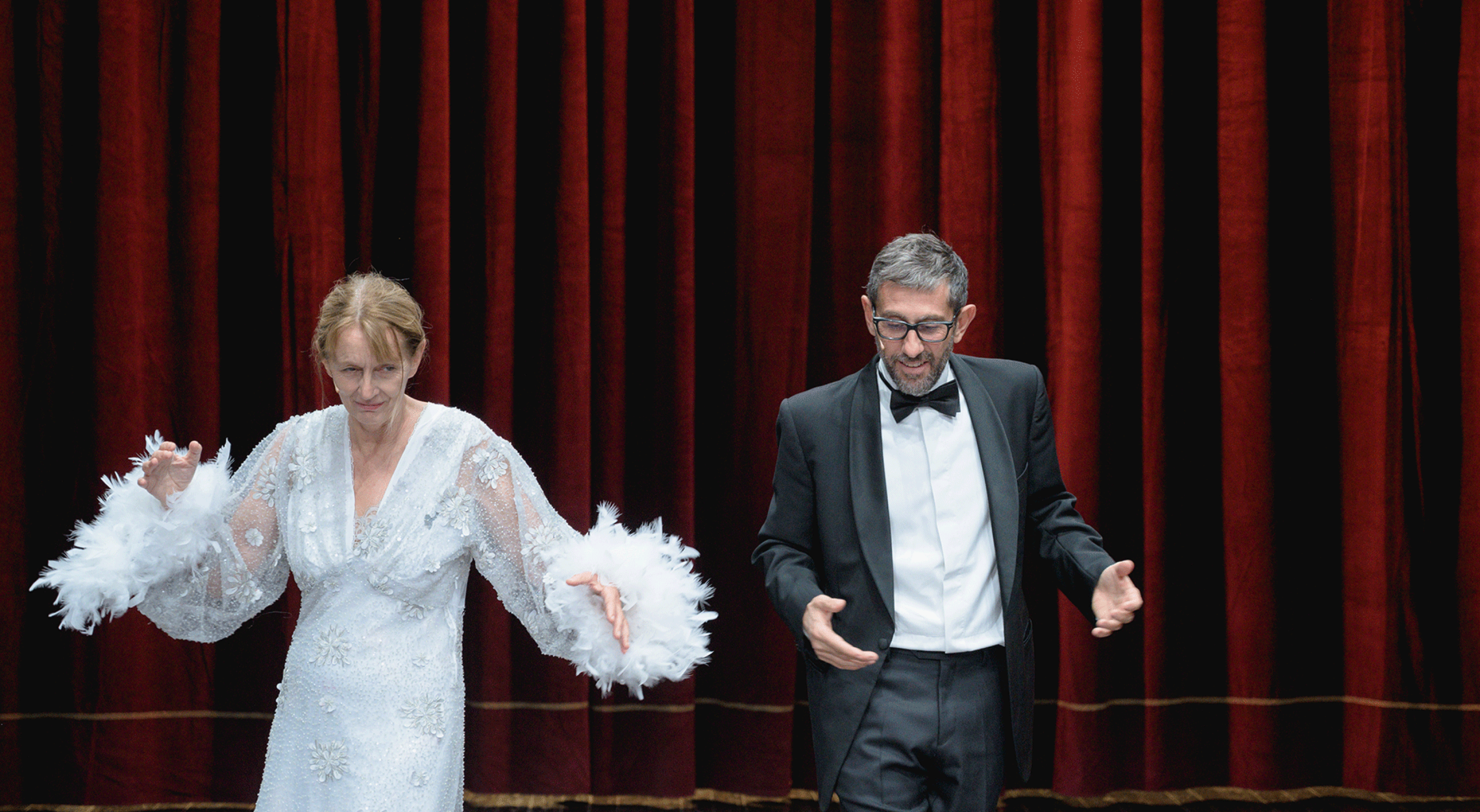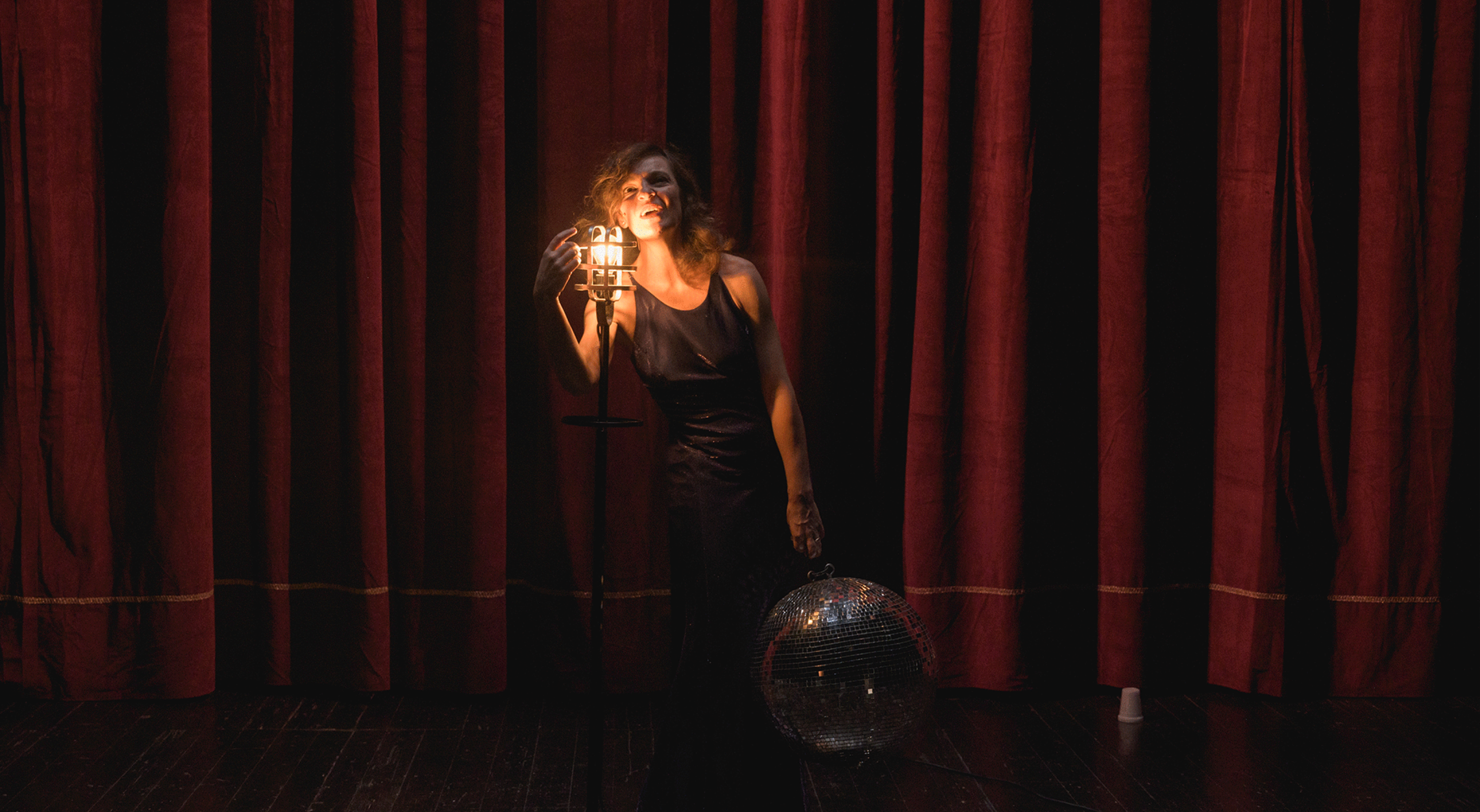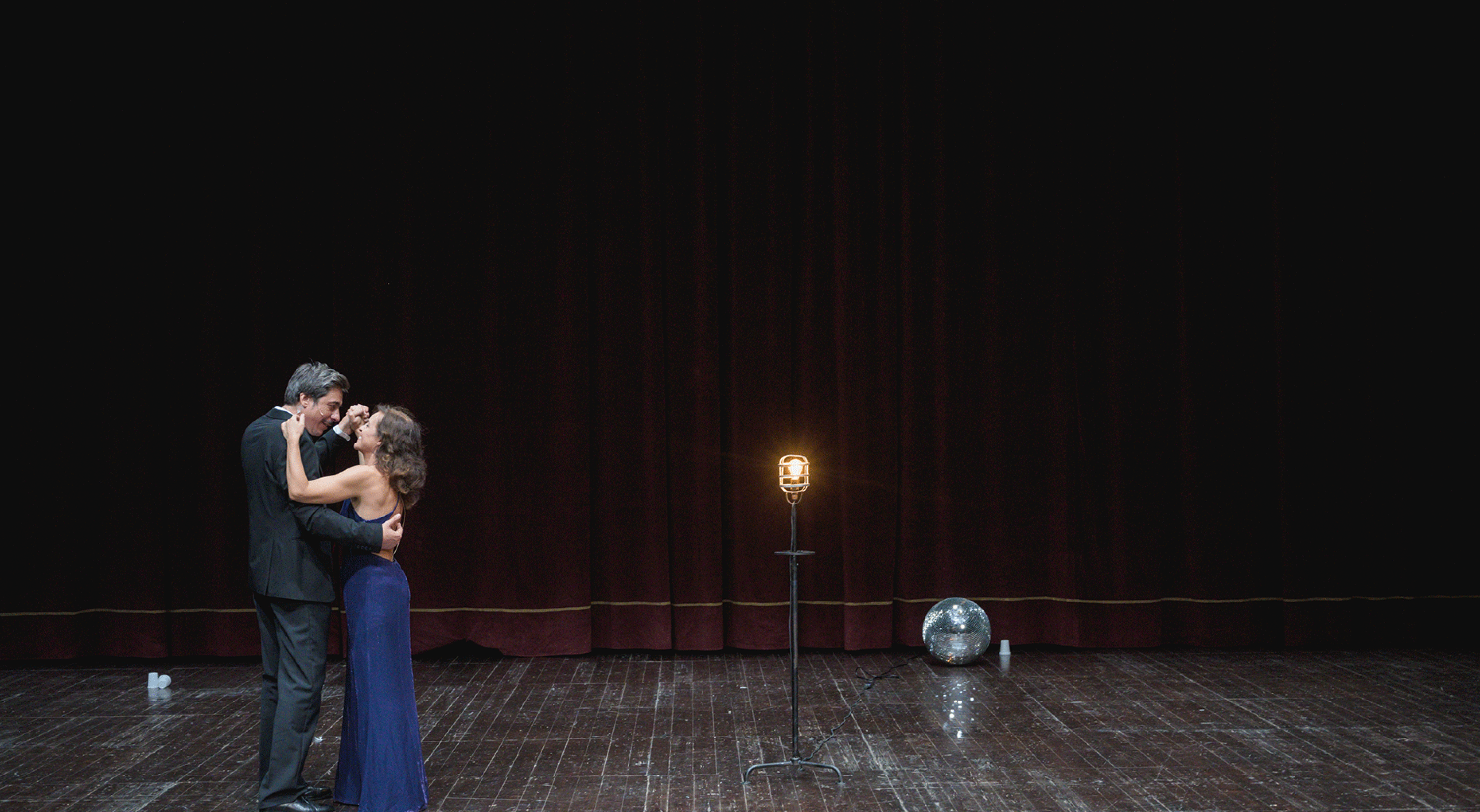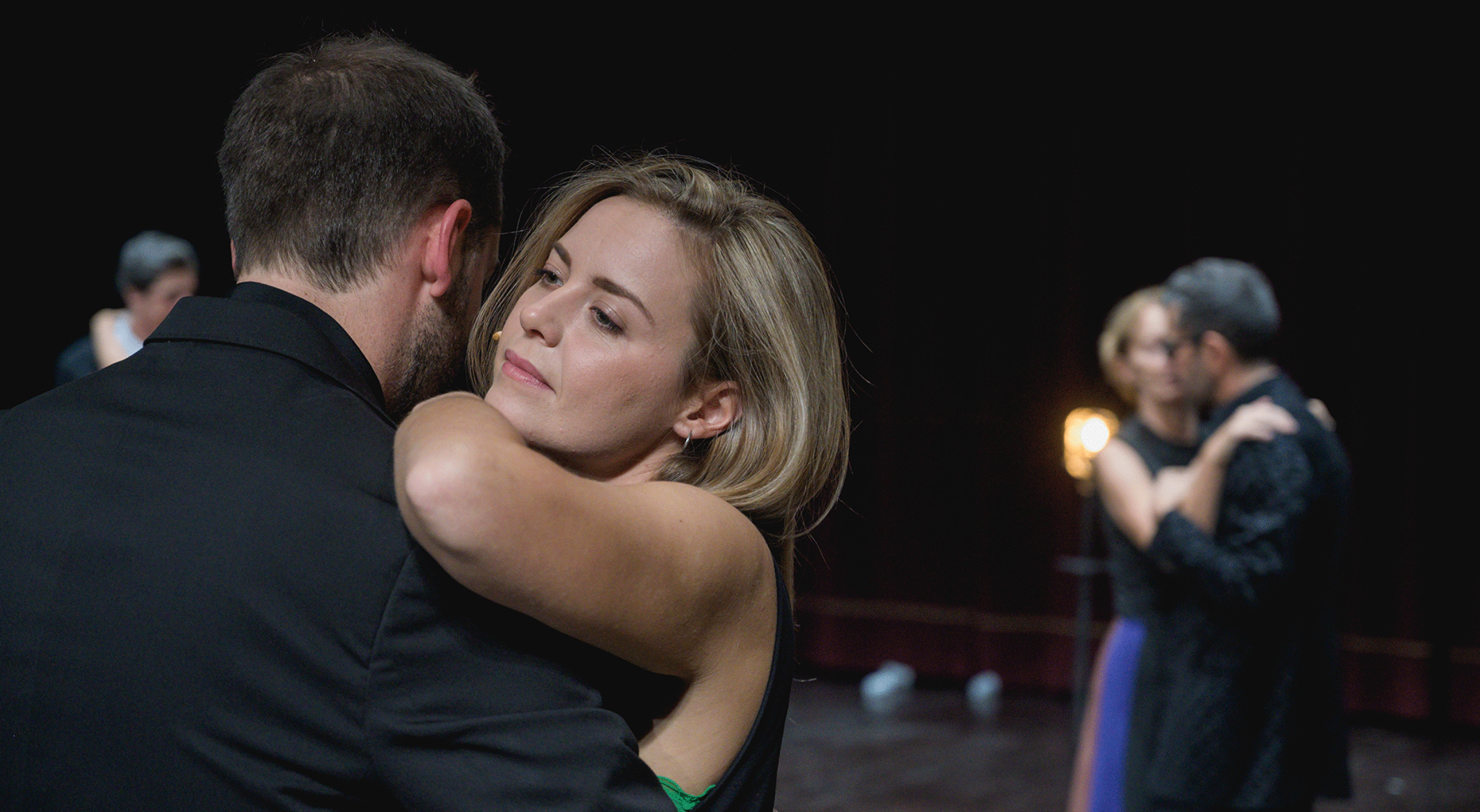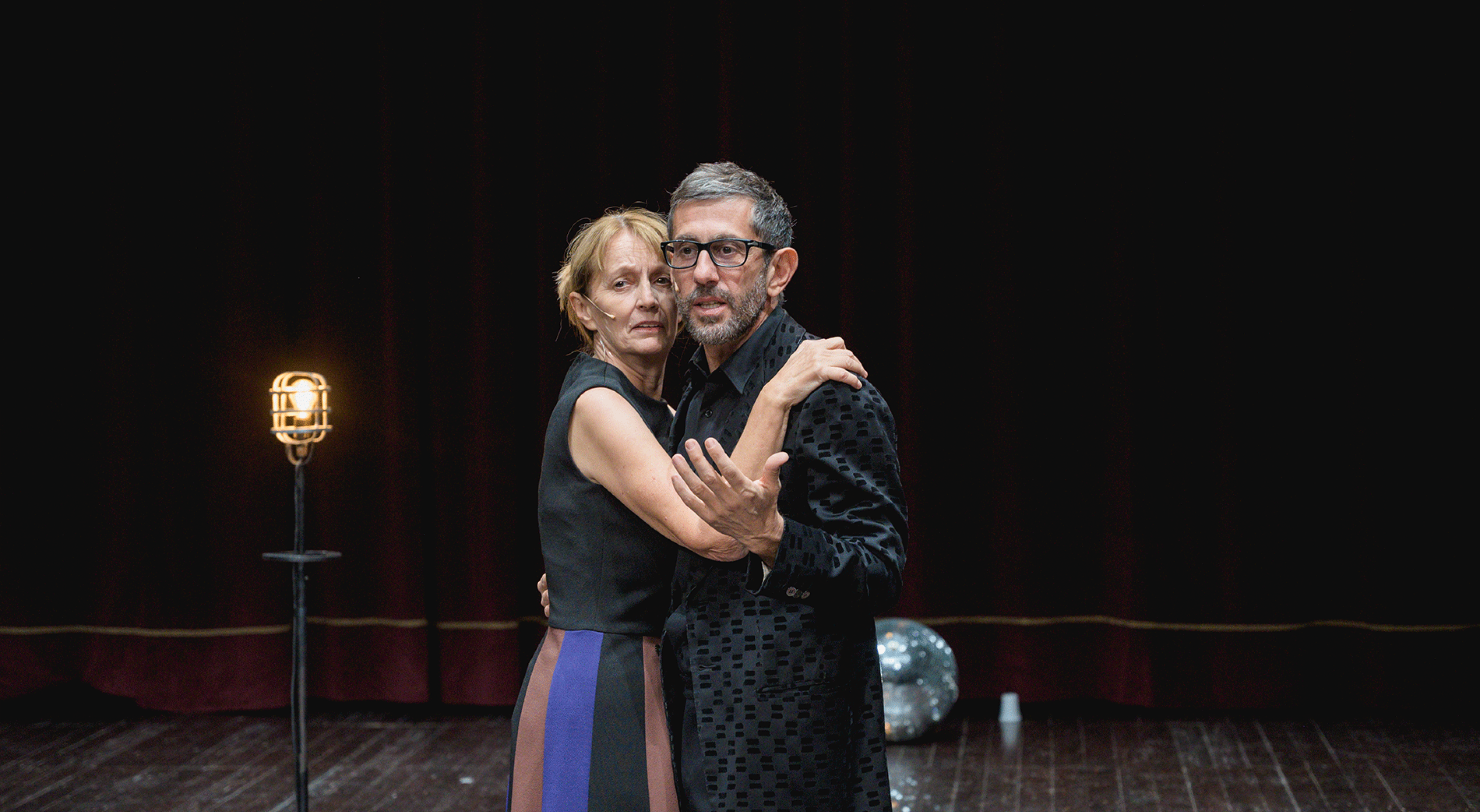Daria Deflorian Antonio Tagliarini
Nous aurons encore l’occasion de danser ensemble d’après Ginger et Fred de Federico Fellini
decemberdec 10 – 18
A project by Daria Deflorian and Antonio Tagliarini
Loosely based on Ginger and Fred by Federico Fellini
Performed and co-created by, Francesco Alberici, Martina Badiluzzi, Daria Deflorian, Monica Demuru, Antonio Tagliarini, and Emanuele Valenti
Stage design and assistant direction, Andrea Pizzalis
Artistic collaboration, Attilio Scarpellini
Lighting, Gianni Staropoli and Giulia Pastore
Scenography, Paola Villani
Sound, Emanuele Pontecorvo
Costumes, Metella Raboni
Technical coordinator, Giulia Pastore
Photos and onstage video recordings, Andrea Pizzalis
Traduction and subtitle, Federica Martucci
Distribution, Giulia Galzigni / Parallèle
Administration, Grazia Sgueglia
Visual, freeze frame of a video from the Prelinger Archive
Thanks to Lorenzo Grilli for Tap dance training and to ziamame for collaborating on costumes
A coproduction by Odéon-Théâtre de l’Europe and Festival d’Automne à Paris
This show is produced in association with Odéon-Théâtre de l’Europe and Festival d’Automne à Paris
A production by Associazione culturale A.D. ; Teatro di Roma – Teatro Nazionale ; Emilia Romagna Teatro Fondazione (Modène) ; and Teatro Metastasio di Prato
A coproduction by Comédie de Genève ; Odéon-Théâtre de l’Europe (Paris) ; Théâtre populaire romand – Centre neuchâtelois des arts vivants ; Théâtre Garonne – scène européenne (Toulouse) ; Centre Dramatique National Besançon Franche-Comté ; and Festival d’Automne à ParisIn association with Odéon-Théâtre de l’Europe (Paris) ; and Festival d’Automne à Paris
With support from the Interreg France-Suisse 2014-2020 European program for cross-border cooperation as part of the MP #3 project and Romaeuropa festival
This show benefited from a residency at Ostudio Roma, Théâtre Garonne – scène européenne (Toulouse)
Following on from a period of work inspired by Red Desert by Michelangelo Antonioni, the new piece by the Italian duo, whose work the Festival d’Automne is so fond of, once again tackles a monumental figure of Italian cinema: Federico Fellini. Here, they take their inspiration from his film Ginger and Fred.
At the end of the film, Amelia says to Pippo : « I don't think we will have the chance to dance together again». The performer duo takes this sentence in the opposite direction by prolonging the research they initiated in Quasi niente (Almost nothing) on the common thread which unites different generations, opening up a space for hope in the process of transmission. Here, a performative and danced conversation is played out between three couples, in their thirties, forties and sixties, respectively. In a short space of time, the piece invites us to perceive them as one and the same couple which, over the course of time, dialogues with past and future moments in its life. These temporal shifts exude a soothing, quite disturbing atmosphere never far from the land of dreams; the latter were always a rich source of inspiration for the great film-maker himself, drawings of which he made until his dying days. In search of this residue of purity which turns into revolt, powerless though it may be, in the case of Fellini's two characters, this piece is an ode to the couple and the energy of dialogue, the latter giving us the possibility of moving forwards together.
In the same place
